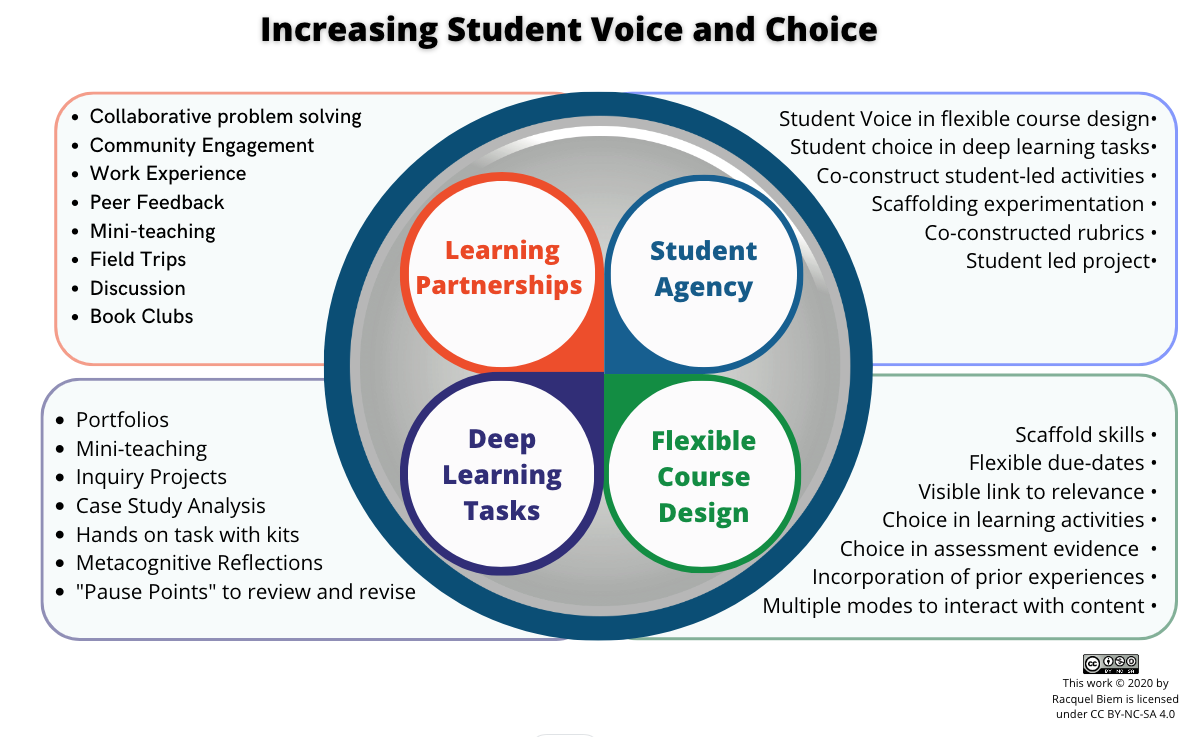Why Open Educational Practices in Our Context?
In the previous post about open educational practices (OEP) at USask, I explained what they are. In this post, we will explore why so many people are already engaging in OEP, and why you should consider integrating these practices into your own teaching and research.
Our beliefs make us Open supporters
Open allows students to participate in the co-creation and sharing of text on current major issues (BLM / Indigenous lives, the pandemic, climate change, struggling small businesses) in their learning, demonstrating that USask is engaged with addressing major issues shaping the world and giving students relevant career skills they can demonstrate for potential employers.
When students create materials to share with an authentic, public audience, they work harder and care more, increasing student engagement with the course and discipline. Students who understand why a discipline matters take more courses in that subject.
It is principally important to share student work with the world (keeping it locked in the U of S isn’t what the world needs), because it engenders students with a deep understanding of the value of sharing and disseminating knowledge, making them allies of a primary mission of all universities, as described in Our learning Charter. These students become more effective ambassadors while on campus, and could be more inclined to see USask’s work as important when they become alumni.
Why now?
The COVID-19 pandemic has, in many ways, brought people together for a common cause, from neighbours getting groceries for neighbours, to scientists across the planet collaborating to find treatments and a vaccine for the virus. The U of S is playing a significant role in this research, but collaboration for and sharing of knowledge towards solutions to major problems doesn’t need to be limited to graduate students, post-docs, and those who have finished their formal education.
The world needs a place where students can learn about, engage with, and even create knowledge and find solutions to the problems we face, from issues around such problems as COVID-19, climate change, and racial and other forms of inequality. The world also needs such a place to share that knowledge and those solutions outside of the institution’s walls so that others can benefit and build upon the work being done. The U of S is in a position to be that place, to be “the university the world needs”.
Demonstrating our commitment to our students doing meaningful course work that contributes to knowledge
Undergraduate research, including through the FYRE (First Year Research Experience) program is being conducted in a growing number of courses across the U of S, with results being shared through poster sessions, on open websites, and in the open access Undergraduate Research Journal. Undergraduate research shared publicly allows for more than just the student researchers to learn from it, which is why the Undergraduate Research Initiative has begun promoting the open sharing of undergraduate research at the U of S.
The development of knowledge and finding potential solutions to the world’s problems can be embedded throughout the disciplines at the U of S. Providing students with opportunities to see how your discipline can contribute to these solutions not only increases student engagement within your courses, especially if that knowledge and ideas for solutions are shared beyond just your class, but may also encourage them to take additional courses in the program.
Support is available to help you engage in open educational practices
If you have questions about open educational practices (OEP) or need help finding open educational resources (OER) contact:
- The Gwenna Moss Centre or Heather M. Ross directly
- The Distance Education Unit if you are working with them on a course(s) where you would like to integrate OER or other OEP
- The Library as your Library liaison may be able to help you find resources

